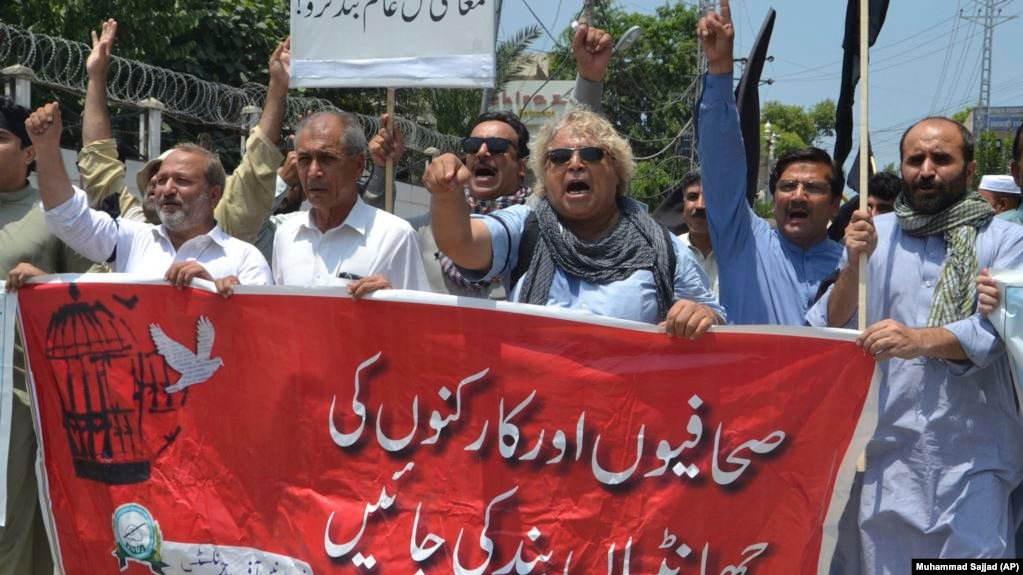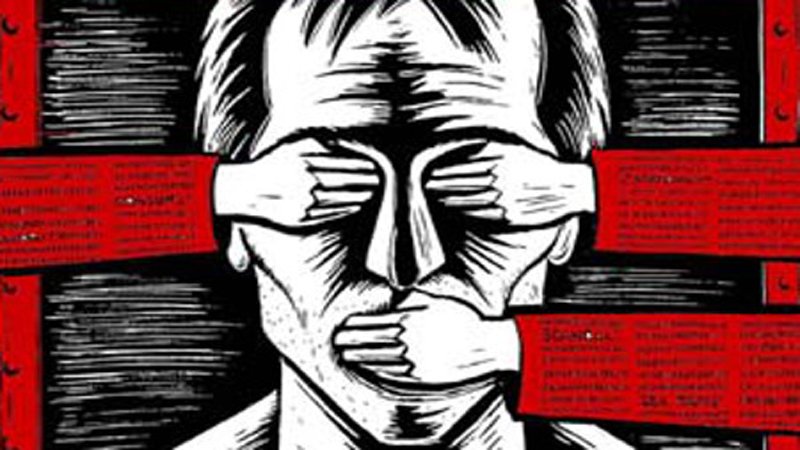
News Desk
ISLAMABAD
The PTI-led government’s plan to launch specialist media courts sparked a furious backlash on Wednesday from media organisations, politicians and human rights defenders who said the move was an attack on freedom of speech.
Prime Minister Imran Khan’s special assistant for information and broadcasting Firdous Ashiq Awan said late on Tuesday that cases against the media would be heard by the special tribunals, which would be overseen by higher courts. The All Pakistan Newspapers Society (APNS) declared the move a “black day” for the Pakistani media and that they would fight the measures in the legislature and judiciary.
“Special courts aimed at intimidating and strangulating the media and freedom of expression are not only unconstitutional but also contrary to the spirit of democracy,” APNS president Hameed Haroon, and secretary-general Sarmad Ali said in a statement.
Journalists and human rights advocates have feared the introduction of the courts amid complaints of growing pressure on broadcasters and newspapers to avoid covering critics of Prime Minister Imran Khan’s administration.
The statements come after Prime Minister Imran Khan’s cabinet earlier this week approved a plan to establish “media courts” to process cases faster and ensure fair trials, according to Khan’s special assistant for information and broadcasting.
In July, opposition parties had accused Khan of intimidating broadcasters into a blackout on TV coverage of his critics, after several channels were briefly taken off-air and opposition protests and news conferences passed unreported.
Senator Raza Rabbani of the PPP had termed restrictions on the media an attack on democracy and a violation of Articles 19 and 19(A) of the Constitution.
“Any such move is condemned and will be resisted inside parliament,” declared Mr Rabbani.
“It appears that after being unsuccessful in foisting the Pakistan Media Regulatory Authority (PMRA) draft, the government has now fallen back on such measures as establishing courts,” said Mr Rabbani.
PML-N information secretary Marriyum Aurangzeb had also opposed the idea of setting up special courts.
The Pakistan Federal Union of Journalists (PFUJ) had also rejected the move, terming it an “ill-conceived idea”.
They said the present government was engaged in media gagging, unannounced censorships, press advices and placing a ban on advertisements from day one. “These draconian measures evoke the days of dictatorial regimes.”
The PFUJ called for urgent withdrawal of the ill-conceived ideas like media courts and a media regulatory authority.
Khan, who took office last year, has denied censoring media and has called the accusations a “joke”.
The government spokesperson said in a tweet that the existing media oversight body to be replaced by the special courts had been criticized for being under state control and that the new courts would meet judicial standards and process cases faster.
“The whole process will be a true reflection of laws and high democratic values,” she said, adding that journalists could also take complaints about the government to the media courts.
But that did not quell the fears of many freedom of speech advocates, with the non-governmental watchdog Human Rights Commission of Pakistan (HRCP) saying it was alarmed.
“How are tribunals expected to maintain the media’s independence?” it said in a tweet.
“Given the government’s woeful record on press freedoms, HRCP urges it to refrain from pressurizing the media further.”
Pakistan’s media has had a turbulent relationship with successive governments and the powerful military for many years. Writers and bloggers say several cases of reporters being abducted and beaten, critical columnists being denied space, advertising business cut to media houses and sackings of TV commentators have created a climate of fear and self-censorship.
Media-related cases are currently being dealt with by the Pakistan Electronic Media Regulatory Authority (PERMA) and the Press Council of Pakistan.
The country is ranked 142nd out of 180 countries in the Paris-based Reporters Without Borders’ (RSF) 2018 World Press Freedom Index.

The High Asia Herald is a member of High Asia Media Group — a window to High Asia and Central Asia

